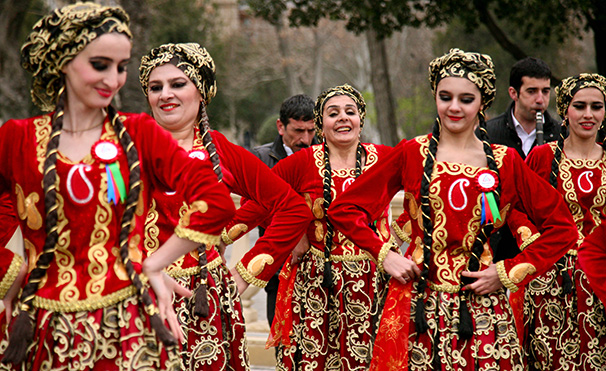
Azerbaijan, situated at the crossroads of Europe and Asia, boasts a rich tapestry of cultural traditions and social norms. For travellers, understanding and respecting these customs is key to fostering meaningful connections and ensuring a respectful experience. This guide offers insights into Azerbaijani cultural etiquette to help visitors engage thoughtfully with the local culture.
1. Greetings and Social Interactions
Handshakes: A firm handshake accompanied by direct eye contact is the standard greeting among men. When greeting women, especially in rural areas, it's advisable to wait for the woman to extend her hand first. In some cases, a nod or slight bow is more appropriate.
Forms of Address: Using titles and surnames is a sign of respect. For example, addressing someone as "Mr. Aliyev" or "Ms. Mammadova" is customary until a closer relationship is established.
2. Hospitality
Azerbaijanis are renowned for their hospitality. If invited to someone's home:
Gifts: Bringing a small gift, such as sweets or flowers, is appreciated. Avoid giving alcohol unless you're certain the host consumes it.
Shoes: It's customary to remove your shoes upon entering a home. Hosts often provide slippers for guests.
Tea Culture: Serving tea to guests is a longstanding tradition. Tea is often accompanied by sweets and jams, symbolizing hospitality and warmth.
3. Dining Etiquette
Seating: Wait to be seated; the host typically indicates where guests should sit.
Eating: It's polite to try a bit of everything offered. Complimenting the food is appreciated.
Toasting: During meals, especially with alcohol, toasts are common. The host usually initiates, and it's respectful to participate.
4. Dress Code
Urban Areas: In cities like Baku, attire is generally modern. However, dressing modestly is advisable, especially when visiting religious sites.
Rural Areas: Conservative clothing is recommended. For women, covering shoulders and knees is respectful.
5. Religious Sensitivities
While Azerbaijan is a secular state, Islam influences cultural practices:
Mosques: When visiting mosques, dress modestly. Women should cover their heads, and both men and women should remove their shoes before entering.
Ramadan: During the holy month of Ramadan, be mindful that some locals may be fasting. It's considerate to avoid eating or drinking in public during daylight hours.
6. Public Behavior
Displays of Affection: Public displays of affection are uncommon and may be frowned upon, especially in conservative areas.
Photography: Always ask for permission before photographing individuals, particularly in rural regions.
7. Taboos and Sensitive Topics
Political Discussions: Avoid engaging in political debates or discussions about sensitive historical events.
Gestures: Be cautious with hand gestures, as some may be considered rude. For instance, the "thumbs up" gesture can be offensive in certain contexts.
Conclusion
By familiarizing yourself with Azerbaijani customs and social norms, you demonstrate respect and openness, paving the way for enriching interactions. Embracing these cultural etiquettes not only enhances your travel experience but also fosters mutual respect and understanding between visitors and hosts.